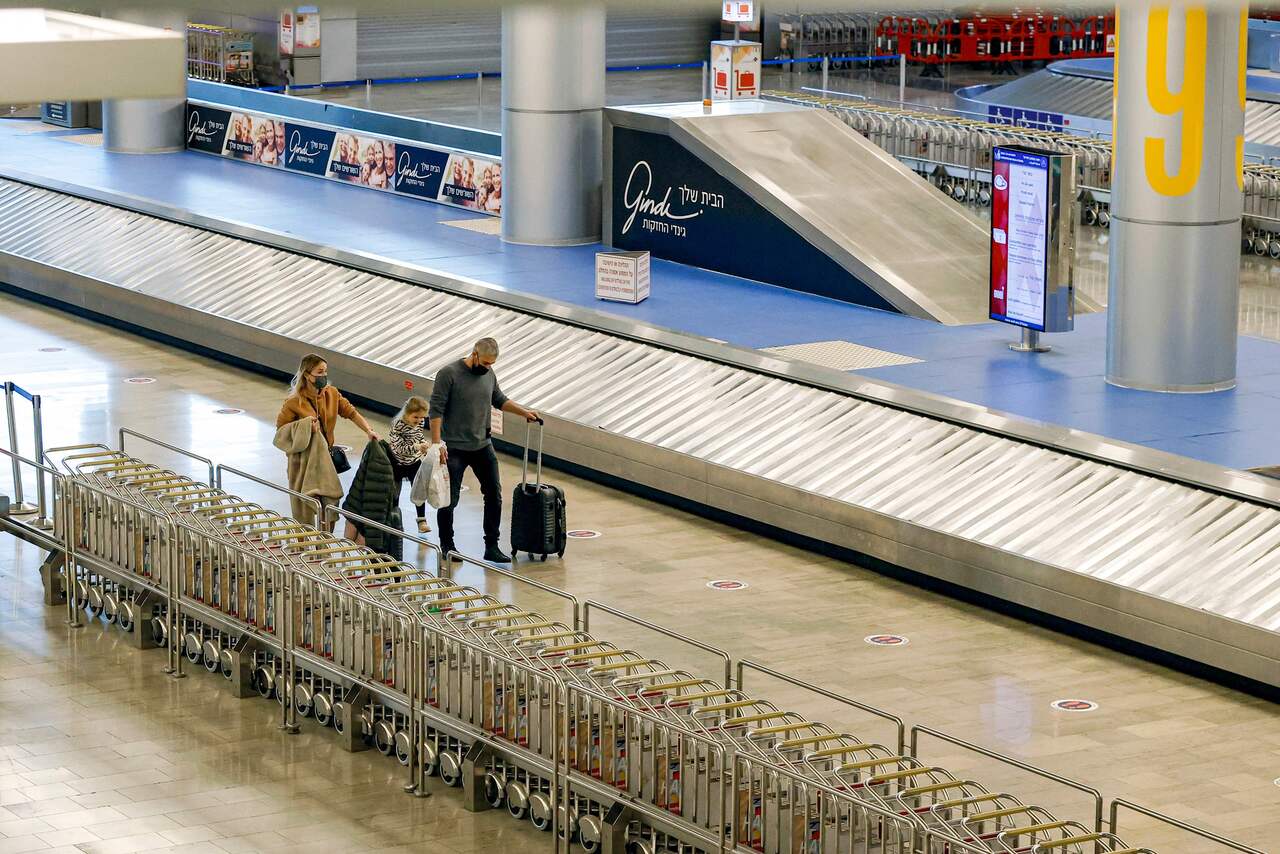Countries tighten borders as coronavirus variants spread
Sign up now: Get ST's newsletters delivered to your inbox

The variant B.1.351, first detected in South Africa, has spread to at least 31 countries.
PHOTO: AFP
WASHINGTON (NYTIMES) - Countries are tightening their borders as a ban takes effect on Saturday (Jan 30) on non-citizens travelling to the United States from South Africa, amid warnings over the threat posed by a virus variant spreading rapidly there and signs that it can weaken the effectiveness of vaccines.
In recent days, Johnson & Johnson and Novavax have each announced that their vaccines provided strong protection against Covid-19, but the results came with a significant cautionary note: Their efficacy rate dropped in South Africa, where the highly contagious variant is driving most cases.
Studies suggest that the variant also blunts the effectiveness of Covid-19 vaccines made by Pfizer-BioNTech, Moderna and Novavax.
The variant B.1.351, first detected in South Africa, has spread to at least 31 countries, including two cases documented in the US this week.
Dr Anthony Fauci, the top infectious disease expert in the US, said last Friday that virus variants should serve as a "wake-up call" to the public, warning vaccine companies that they must be "nimble to be able to adjust readily to make versions of the vaccine that are actually, specifically directed to whatever mutation is actually prevalent at any given time".
Other countries hoping to slow the spread of more contagious variants will soon be under new restrictions.
Canadian Prime Minister Justin Trudeau has announced that some flights from Mexico and Caribbean nations will be suspended. International travellers must take coronavirus tests when they enter Canada and will have to wait up to three days for results in an approved hotel at their own expense.
Restrictions in France and Germany begin this weekend.
Starting on Sunday, France will ban most travel from all countries outside of the European Union. Except for cross-border workers, travellers from EU countries will be required to present a negative test before entering the country, said Prime Minister Jean Castex.
In Germany, non-residents from several countries - Portugal, Brazil, South Africa, Lesotho and Eswatini (formerly known as Swaziland), Britain and Ireland - will be restricted from entering the country, even if they test negative for the virus.
The US is also extending its ban on travel from Brazil, Britain and 27 European countries.
The first US case of a Brazil-based variant, known as P.1, was confirmed in Minnesota last Monday. Scientists expect it to behave similarly to the South African-based variant because it shares genetic similarities.
Vaccines have proved effective in studies against the highly contagious Britain-based variant, called B.1.1.7, but the US Centres for Disease Control and Prevention has warned that it could become the main source of infection in the country by March and drive more cases and deaths.
Dr Rochelle Walensky, the new CDC director, said last Friday that the variant first identified in Britain has now been confirmed in 379 cases in 29 states. She said officials remained concerned about the variants and were "rapidly ramping up surveillance and sequencing activities" to closely monitor them.
Unlike Britain, the US has been conducting little of the genomic sequencing necessary to track the spread of the variants.
The spreading variants have added renewed urgency to speeding up vaccine distribution.
The EU is grappling with disrupted vaccine deliveries, while the Joe Biden administration is pushing to accelerate the slow, chaotic inoculation drive in the US.


